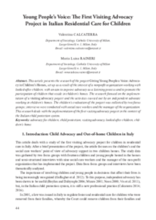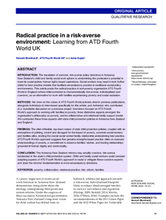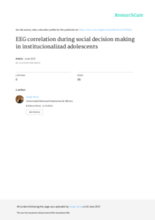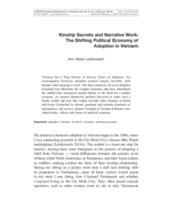Displaying 721 - 730 of 1343
This article presents the research of the project "Giving Young People a Voice: Advocacy in Children’s Homes," which evaluated the implementation of a visiting advocacy project and services provided by an independent advocate working in children's homes in Italy.
In this Business of Giving podcast episode, Denver Frederick interviews Catholic Relief Services President and CEO Sean Callahan about "Changing the Way We Care," a collaborative project between CRS, Lumos, and Maestral International and semi-finalist for the MacArthur Foundation 100&Change competition.
This report examines and shares learnings from ATD Fourth World UK's social work practice framework with families experiencing poverty, discussing its strengths-based collaborative approach to build relationships and reduce power imbalances between practitioners and families. Implications for the feasibility of implementing this framework in child protection social work practice and policy in Aotearoa New Zealand is also addressed.
This paper is based on the findings from a qualitative study with orphaned children in South Africa, their teachers and caregivers, which investigated the capacity of extended families affected by poverty and HIV/AIDS to care for and support orphaned children.
In this video, Philip Goldman, President of Maestral International, discusses how donors, faith communities, advocates and other committed actors can be brought together under the common belief that all children belong in families.
This study investigated and compared electroencephalogram (EEG) functioning between a group of institutionalized adolescents and a never institutionalized group of adolescents during a social decision making task.
This study investigated how adoptive and prospective adoptive parents in Spain deal with signs of fraud and corruption within the intercountry adoption process, illuminating the dismissal of the systemic failures of intercountry adoption and the rights of birth families.
This study sought to identify child, carer, and intervention characteristics that contribute to child wellbeing for Aboriginal children in out-of-home care in Australia. The article also identifies enablers and barriers to providing trauma-informed and culturally competent care to Aboriginal children.
This paper offers recommendations for child welfare professionals, caregivers and systems to use the research on adolescent brain development to work effectively with youth in or emerging from foster care.
This article draws from three narratives of secret adoptions in Vietnam to further examine and analyze the complex nature and practices of domestic adoption in the country.





